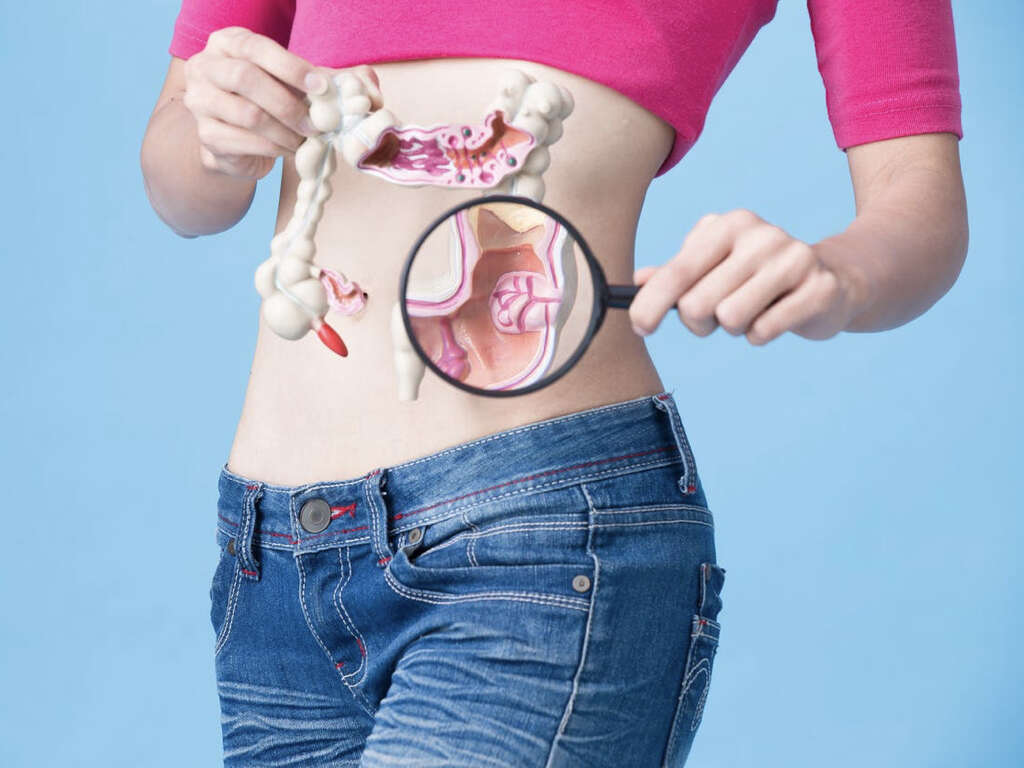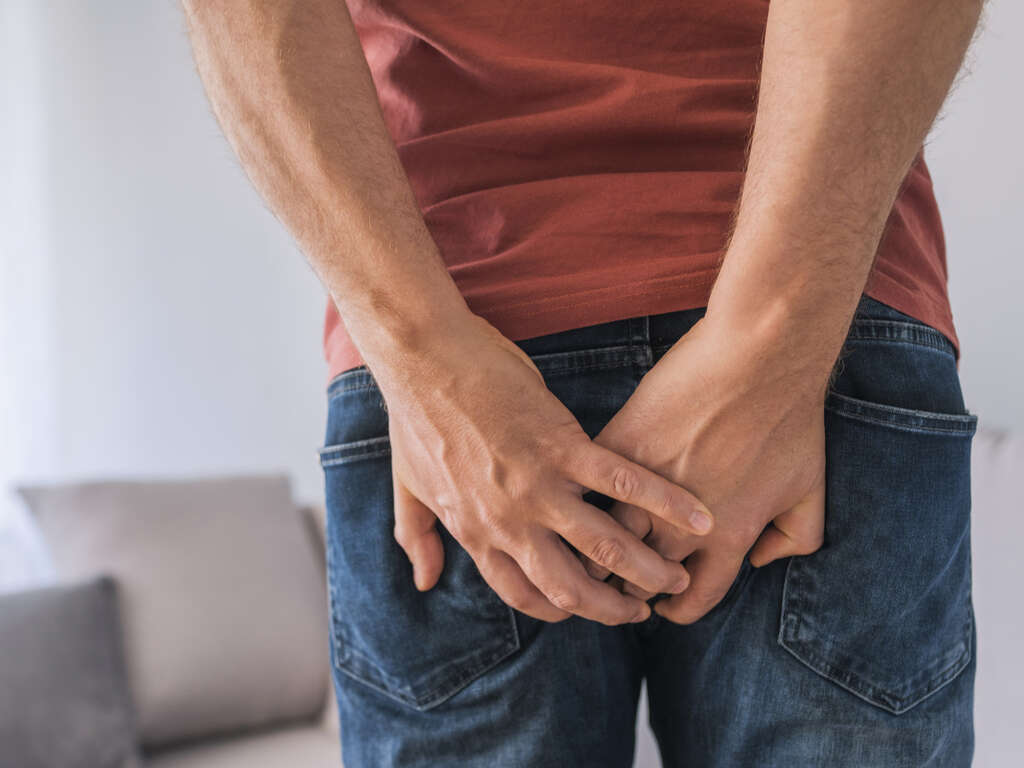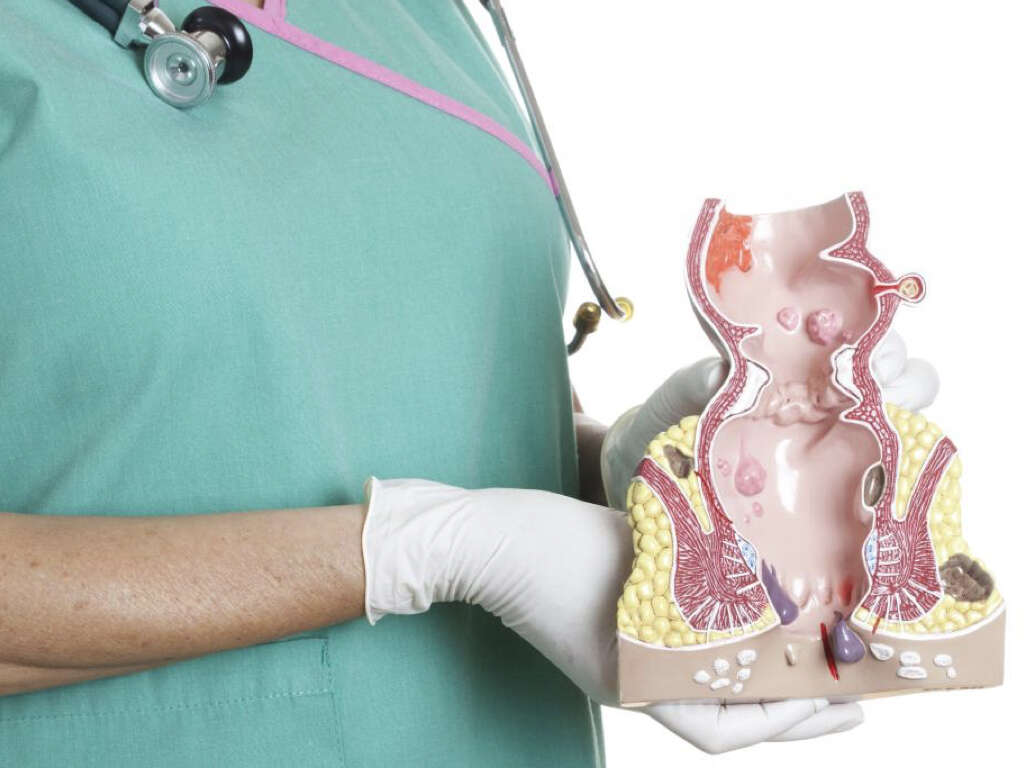Melena Stool Definition, Causes and More
 Article Sources
Article Sources
- 1. 'Melaena - Causes - Diagnoses - Management.' TeachMeSurgery, 3 Apr. 2020, teachmesurgery.com/general/presentations/melena/.
- 2. Tresca, Amber J. 'What Are the Causes of Black Stool?' Verywell Health, www.verywellhealth.com/causes-of-black-stool-1941711.
- 3. 'Melena - What You Need to Know.' Drugs.com, www.drugs.com/cg/melena.html.
- 4. 'Cirrhosis.' Mayo Clinic, Mayo Foundation for Medical Education and Research, 6 Feb. 2021, www.mayoclinic.org/diseases-conditions/cirrhosis/symptoms-causes/syc-20351487.
- 5. Wilson, I. Dodd. 'Hematemesis, Melena, and Hematochezia.' Clinical Methods: The History, Physical, and Laboratory Examinations. 3rd Edition., U.S. National Library of Medicine, 1 Jan. 1990, www.ncbi.nlm.nih.gov/books/NBK411/.
When there's a change in bowel habits and a noticeable difference in stools, it can be a cause for concern. Black stools can often be traced back to a simple cause such as recent meals or nutritional supplements, but sometimes the reason can be related to gastrointestinal bleeding.
Stools that are tarry, sticky and appear to contain congealed blood are referred to as melena. There's normally an internal cause for a melena, which would need to be diagnosed by a healthcare professional. These stools are frequently accompanied by weakness, vomiting and pain. A variety of treatments are available.
1. What Is a Melena Stool?
Stools caused by bleeding in the upper GI tract are easily identifiable by their tar-like consistency, putrid odor and inability to flush away. A black stool is referred to as melena and occurs when fresh red blood changes to black during the digestive process.1‘Melaena - Causes - Diagnoses - Management.’ TeachMeSurgery, 3 Apr. 2020, teachmesurgery.com/general/presentations/melena/. Fresh red blood in stools is generally caused by hemorrhoids or issues in the lower digestive tract.
The consistency and color of an individual's stool can reveal a lot about their diet and overall health. Black stools may indicate the presence of blood, but can also be from additives in food, food groups and iron supplements.
2. Symptoms
Melenic stools differ from other black stools in that they're pitch black, sticky and have a foul odor. Because melena is caused by bleeding, it means that blood loss is occurring, which may cause anemia.1‘Melaena - Causes - Diagnoses - Management.’ TeachMeSurgery, 3 Apr. 2020, teachmesurgery.com/general/presentations/melena/.
Apart from the obvious change in stool texture, accompanying symptoms may include abdominal pain, vomiting and an overall feeling of weakness. These symptoms arise from mild blood loss. It's possible that more severe blood loss could occur, which would need immediate medical attention or hospitalization.

3. Getting a Diagnosis
First, it needs to be determined if there's blood in the stool before investigating the cause. A medical professional should provide a diagnosis, which is normally done by analyzing a fecal sample provided by the affected individual. Rectal exams are another diagnostic tool used to determine melena.
When the diagnosis is confirmed, a physician may order a few tests to pinpoint the location of the bleeding. Tests may include an EGD, colonoscopy and X-rays.2Tresca, Amber J. ‘What Are the Causes of Black Stool?’ Verywell Health, www.verywellhealth.com/causes-of-black-stool-1941711.
4. Causes of Melenic Stools
Two of the most common causes of melenic stools are peptic ulcers and gastritis. Peptic ulcers are small sores caused by stomach acid affecting weaker areas in the stomach lining, intestine or esophagus. Inflammation of the lining may also be caused by gastritis, which frequently results from sensitivity to spicy foods or alcohol abuse.
Other causes include bacterial infections, such as Helicobater Pilori, hemorrhagic blood diseases, esophageal varices, malignant tumors and overuse of NSAIDs.2Tresca, Amber J. ‘What Are the Causes of Black Stool?’ Verywell Health, www.verywellhealth.com/causes-of-black-stool-1941711. More serious issues, like chronic liver disease and hepatitis can also cause melenic stools.

5. Treatment
There are a few ways to restore the health of stools and treat melena. The treatment used depends on the root cause of the condition. Treatment for an ulcer typically requires medication to restore the microbiome of the digestive tract and reduce acid levels in the stomach.3‘Melena - What You Need to Know.’ Drugs.com, www.drugs.com/cg/melena.html.
Alternate treatments may include an endoscopy to seal open tears and surgery to remove tumors. If the bleeding is severe, a blood transfusion may be required during surgery.
6. Recovery
Recovery from melena doesn't happen overnight. It's important to follow a physician's aftercare advice and get adequate rest to enable healing. If prescribed medication, the entire course should be followed.
Individuals are encouraged to book regular checkups with their healthcare provider and monitor their stools during the recovery process. When the cause of the melena has been identified and a treatment plan implemented, it should be taken seriously. If there's no change in the stools during the recovery phase, individuals should seek medical attention immediately.

7. Prevention
Preventing melenic stools requires an understanding of what caused the issue in the first place. For example, certain drugs, like steroids, may cause bleeding in the GI tract if used over a prolonged period of time. In these cases, individuals might want to review their medication choices.
Making healthy lifestyle choices such as quitting smoking, upping fluid intake and avoiding spicy foods and alcohol can prevent a recurrence in some people. Melenic stools may also be caused by underlying disease that needs to be addressed.
8. Risk Factors
Cirrhosis of the liver caused by hepatitis or alcohol abuse can cause esophageal varices, which are one of the causes of melena. Individuals with chronic alcoholism or hepatitis are considered the most at-risk group for melena.4‘Cirrhosis.’ Mayo Clinic, Mayo Foundation for Medical Education and Research, 6 Feb. 2021, www.mayoclinic.org/diseases-conditions/cirrhosis/symptoms-causes/syc-20351487.
The overuse of painkillers and bacterial infections can lead to peptic ulcers, which are another leading cause of melena. Individuals with malignant tumors in the upper digestive region and those with a history of dyspepsia are also at risk.

9. Similar Conditions
Blood in the stool is a cause for concern, but not all bloody stools are categorized as melenic. Hematochezia frequently produces blood in stools, however, the color of the blood is different.
Hematochezia results in fresh blood in the stool, which normally comes from the colon or anus.5Wilson, I. Dodd. ‘Hematemesis, Melena, and Hematochezia.’ Clinical Methods: The History, Physical, and Laboratory Examinations. 3rd Edition., U.S. National Library of Medicine, 1 Jan. 1990, www.ncbi.nlm.nih.gov/books/NBK411/. The difference between bloody stools and melenic stools lies in the consistency and color. Consuming blueberries, licorice or iron supplements can also cause dark stools.
10. Healthy Lifestyle Tips
Healthy eating can help keep the immune system and organs functioning properly. For those with preexisting issues, bad diet choices may aggravate conditions that lead to melena.
Increasing the intake of fiber-rich fruit and vegetables, removing sugar and spicy foods from the diet and cutting back on alcohol may also help. If possible, talk to a physician about cutting out any medications containing steroids. Quitting smoking may also help, as it can cause esophageal issues which in turn can lead to bleeding and melena.










